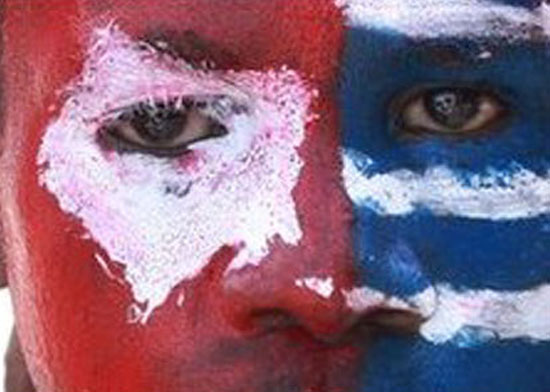
This thesis explores themes of unity and conflict within West Papua’s independence movement, analysing the extent to which conflict has hindered the movement’s efforts to achieve independence from Indonesia, and the importance of the concept of unity for West Papuans. It examines whether unity within the movement enhances its efficacy. The thesis’ research methods are informed by critical ethnographic epistemologies and include semi-structured interviews with West Papuan independence leaders in West Papua, Vanuatu, Australia, Papua New Guinea, Sweden, the United Kingdom and The Netherlands; as well as participant observation. West Papua’s independence movement is renowned for the interpersonal, intertribal, intra and inter-generational, and factional conflict it has experienced since its inception. Conflict has been generated endogenously and by divide and rule tactics engineered by Jakarta. Nevertheless, a history of unity also exists within the struggle, coalescing at times as a result of transformed conflicts and changing allegiances. West Papuan independence leaders are united in: their beliefs that merdeka (freedom) will not be achieved in West Papua without independence; their firm faith that independence will be achieved; and in visions for a future democratic “federation of tribes” style of government. Another significant bond between West Papuans globally is their ever-evolving sense of a Melanesian, pan-West Papuan national cultural identity. This thesis concludes that the ubiquitous factionalism in West Papua’s independence movement has at times added to its efficacy, prompting different strategies and competition for success, paradoxically contributing to a bigger-picture unity of spirit, ambition and progress which is increasing. While this newly invigorated, more unified West Papuan body politic faces fierce opposition from mainstream Indonesian and international forces, this thesis demonstrates that West Papuans are successfully applying pressure to points of vulnerability in this opposition. Democratising Indonesia prizes its international reputation and has much to gain by dealing seriously and justly with the West Papuan conflict. The future is gloriously uncertain.
Keywords: West Papua independence, conflict and unity, factionalism, peacemaking
Camellia Webb-Gannon is coordinator of the West Papua Project at the Centre for Peace and Conflict Studies, University of Sydney.
Webb-Gannon, Camellia (2011). Birds of a feather: Conflict and unity with West Papua's independence movement. Unpublished PhD thesis, Centre for Peace and Conflict Studies, University of Sydney. http://ses.library.usyd.edu.au/handle/2123/8004


